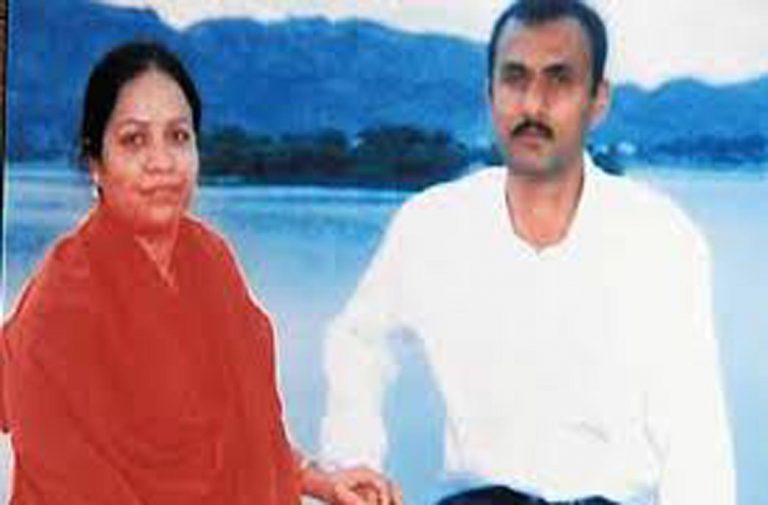
Above: (Left) Kausarbi and Sohrabuddin Sheikh
The Bombay High Court, on Wednesday (January 24), quashed an order by a special CBI court that banned the media from reporting on the proceedings in the Sohrabuddin Sheikh ‘fake encounter’ case.
Justice Revati Mohite-Dere said the ban on publishing any part of the proceeding was contrary to law and that “certainly public had a right to know what is happening in this case.”
The gag order had been issued by the special CBI court of Additional Sessions Judge SJ Sharma had, on November 29, 2017, issued the gag order against a handwritten request submitted by advocate Wahab Khan, counsel for Rajasthan policeman Abdul Rehman Khan, who had urged the court to ban media reporting on proceedings in the trial. Khan and lawyers of other accused in the case had argued that publishing such details would affect the security of the prosecution lawyers, the accused and the defence team.
The defence lawyers had pointed out that media reports raising doubts about the death of Judge Brijgopal Harkishan Loya, who had presided over the Sohrabuddin Sheikh case when BJP president Amit Shah an accused in it, had led to apprehension about the possibility of any “untoward incident”.
Nine journalists had moved the Bombay High Court seeking quashing of the gag order. The journalists had, through their lawyers Aabad Ponda and Abhinav Chandrachud, submitted before the Bombay High Court that the special CBI court had overreached its jurisdiction while imposing the gag order, a power that lies only with courts of record i.e. the high courts or the Supreme Court.
“The trial court’s order usurps jurisdiction of the superior courts. It has not prohibited access, it is an open trial which can be attended by anyone including the mediapersons but prohibits publication. The order is in nature of an injunction which it does not have the power to give. It cannot restrict the media from reporting the trial (sic),” the petitioners had said.
On Tuesday, while hearing the writ petition filed by the journalists, the Bombay High Court had asked: “Under which provision does the judge have the power to direct the media not to publish? Can the court, in the absence of power, pass such an order?”
On Wednesday, when the petition came up for hearing again, the Justice Revati Mohite-Dere said in a strongly worded order: “Sensationalism cannot be the cause to prevent media from publishing… Similarly, a mere allegation of a surcharged atmosphere cannot suffice. Nothing has been brought on record to substantiate the defendants’ contention that they are in fear of their life.”
The high court also held that the media serves a larger public purpose by disseminating information that will otherwise not be easily available to the people and added that the “Press is the most powerful watchdog of the society… a fair trial is one which balances the public interest of society. It is always open for prosecution if necessary to request the court to conceal the identity of the witness if the need so arises.”

